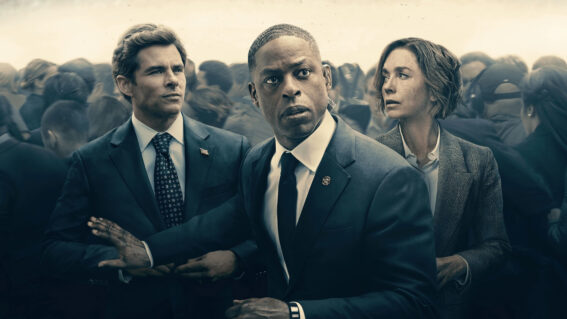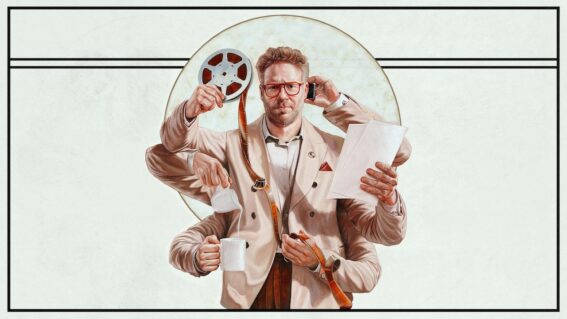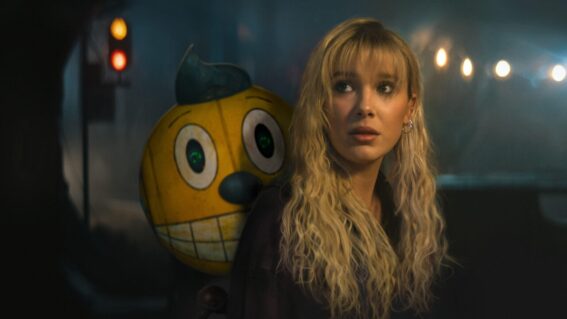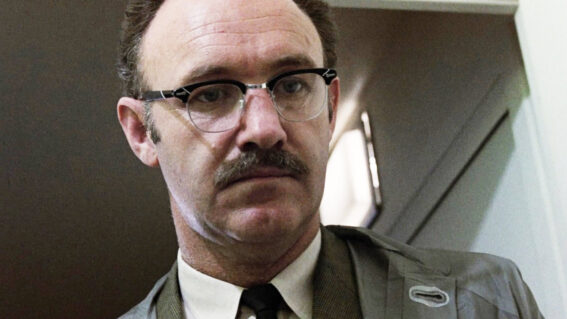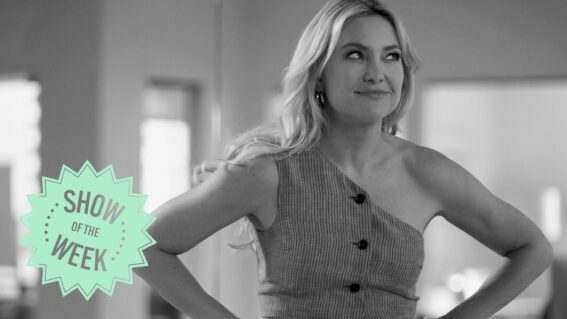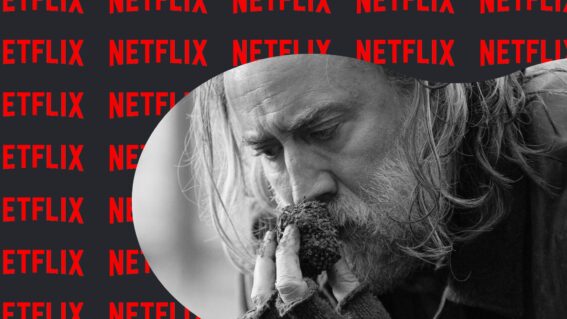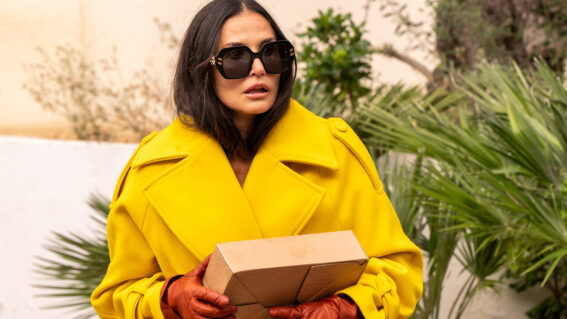Why The Boys is the best superhero property since Endgame
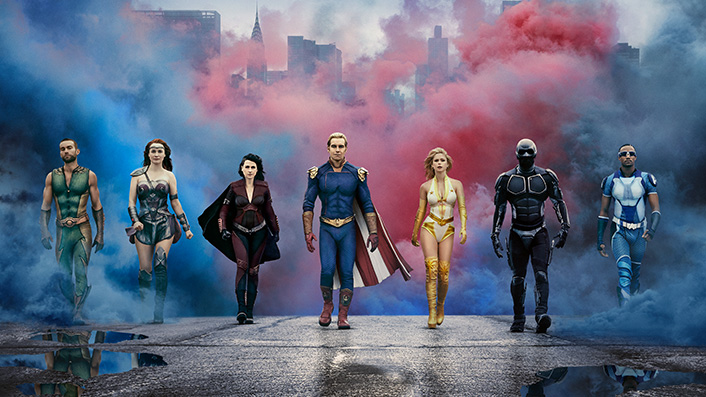
Prime Video‘s hit superhero series The Boys, an adaptation of the comic book series from Garth Ennis and Darick Robertson, returns with the first three episodes of season two streaming this Friday (new episodes drop weekly). Liam Maguren argues why the first season gave us the best superhero property since Avengers: Endgame and how season two looks to keep that title.
Last year, Avengers: Endgame concluded the Marvel Cinematic Universe, making it the biggest film of all time. The MCU as a whole provided much-needed escapism from the messiness of the real world by showing powerful people as doers of good and keepers of justice.
But, let’s face it, the real world contains far too many powerful people as doers of bad and enablers of injustices (just look at the humanoid Dorito currently ruling America or the dead-eye cyborg running Facebook). Season one of The Boys gleefully sets out to remind superhero fans of the world they live in by dragging caped crusaders through the murk of corporate corruption and merchandised morals that currently pollute our lives.
See also:
* New to NZ streaming services this September
* All new shows & films on Prime Video
* All new shows & films now streaming
At a time where truth and fiction blur in the cesspool of social media, seeing The Boys comically smash fantasy with reality feels like a rebellious act of defiance. That’s what makes it the best superhero property we’ve gotten post-Endgame.
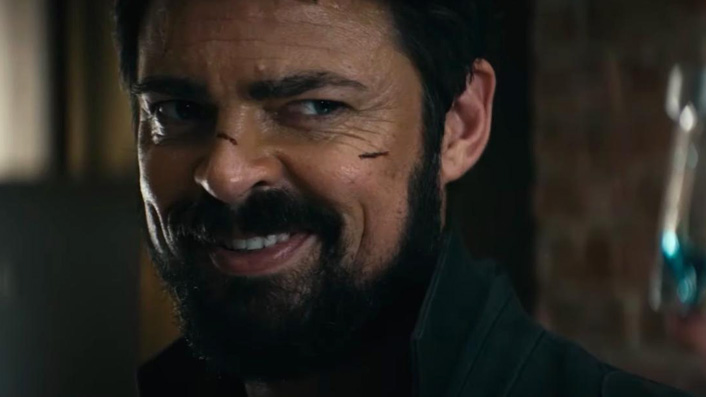
Perhaps it’s my patriotism talking, given the first season’s powered largely by the dominant performances of two Kiwi screen legends: Karl Urban (Dredd) and Antony Starr (Banshee). Putting the ‘cock’ in ‘cockney’, Urban mops up the screen as British brute Billy Butcher, leader of the no-power group of “boys” looking to end the seven biggest—and most untrustworthy—sponsored superheroes in the world. From the very first episode, we see Butcher square off against an invisible man called Translucent by spitting blood in his face and mocking his stupid name (“it means semi-transparent”) before kicking him into an electrical circuit.
It’s an introduction that would typically celebrate a man sticking it to The Man with all his alpha-ness, but as future episodes reveal, this jerk with a smirk is packed with all the toxic trappings. Heartless. Selfish. Sexist. Crude. Deceitful. Maniacal. An all-round piece-of-shit really, but he isn’t completely irredeemable and he does get results, which makes it difficult for the others to challenge his leadership. One thing’s for sure though: he ain’t no hero.
Starr doesn’t play one either, despite looking like a discount Superman. As Homelander, leader of The Seven and the most powerful being on the planet, he effortlessly ping-pongs between the wholesome image he parades to the public and the violent inner lunatic tormented by his upbringing. We Aotearoeans knew how good Starr was with dual roles in Outrageous Fortune, but this new creation is a different—and compelling—beast.
In any given scene, you don’t know what persona you’re going to get, and thanks to Starr’s complex and frightening performance, a simple smile from Homelander could mean anything from a photo-op to a gruesome death. To put it simply, he’s a superpowered version of Joffrey from Game of Thrones, albeit grown up and with a PR agency pulling his (very thin) strings. You’ll also see him erotically tongue breast milk from a bottle, so enjoy that.
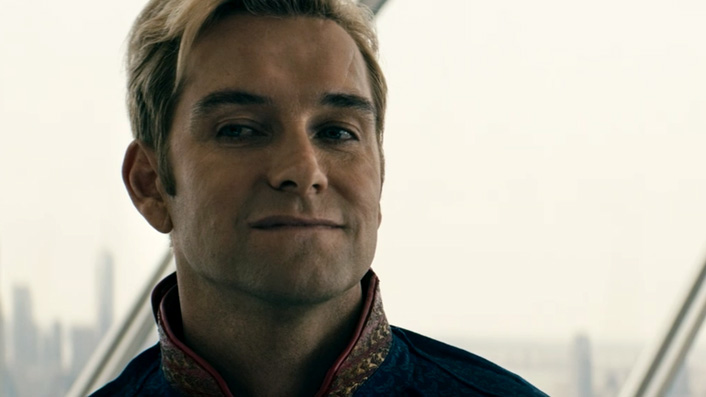
Caught in the middle of these two destructive forces are well-meaning dweeb Hughie (Jack Quaid), who joins Butcher after a “supe” recklessly kills his girlfriend, and big-hearted hero Starlight (Erin Moriarty), whose dreams of joining The Seven are quickly sullied by an abhorrent case of sexual deviancy.
They both serve as the show’s moral compass on either side of this war—and that compass is vital. With an unapologetically cynical sense of humour, The Boys charges head-on into an impressive number of mucky issues: big pharma, sports doping, religious brainwashing, domestic abuse, male fragility, faux corporate wokeness, the industrial military complex. It’s a LOT but it never feels overwhelming or crowbarred for the sake of being relevant. Rather, it uses the absurdity of spandex heroes as a funhouse mirror to reflect the ugliness of the Western world.
That justifies the show’s embrace of gory violence, which is at times comical and almost always shocking. Understandably, it’ll prove off-putting to many, but every charred bone and ripped-off limb serves as a brutal reminder that our world is not responsible enough for superheroes when we can’t even keep regular power in check. We are not Peter Parker.
It didn’t seem like there would be much more to cover after the first season, but in a relatively short production time, The Boys: Season 2 manages to improve and amplify its voice further in the three episodes I’ve seen.
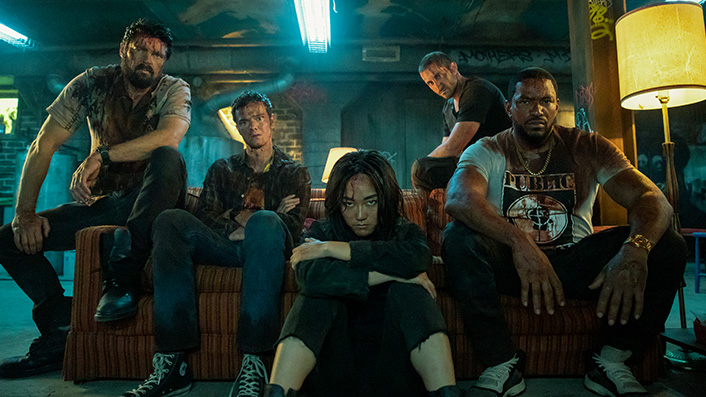
Kimiko (Karen Fukuhara), a Japanese supe on the boys’ side, has actual conversations now, relieving the character somewhat of the silent Asian stereotype that hindered her in the first season. The Deep (Chace Crawford), who committed the deplorable aforementioned act of sexual deviancy, has his insecurities further exposed to intriguing degrees that cut to the root of such abusers (includes an attempted apology which, predictably, is a god-awful one). And new character Stormfront (Aya Cash) puts a cape on influencer culture—she’s appropriately insufferable.
Above all else, The Boys continues to challenge our perception of superheroes. This isn’t to take away from the goodness that comes from properties like the MCU; the love-filled response to the tragic passing of Chadwick Boseman reminded us of the profound impact a film like Black Panther can have on those who need it.
However, while there’s a bright-eyed child of colour dreaming of donning a costume and making the world a better place, there’s also a toxic troll in the dark recess of the internet fantasising about beating people close to death while dressed as a bat. The Boys is a blunt reality check directed towards the latter, and we need it.


